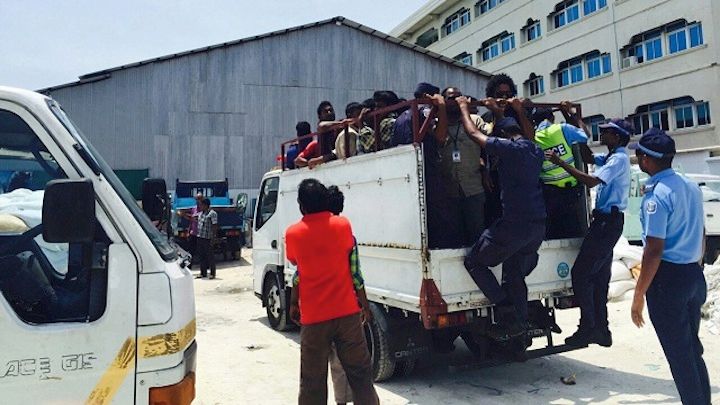Two foreigners arrested on human trafficking charges
The pair are accused of illegally “recruiting” migrant workers to bring to the Maldives. They were apprehended yesterday from Addu City and Vilimalé in joint operations conducted by the immigration department and the police.

05 Jan 2016, 09:00
Two foreigners were arrested on Monday on a charge of human trafficking. Authorities say they suspect the involvement of locals, but declined to reveal whether any Maldivians have been arrested yet.
Hassan Khaleel, the immigration department’s spokesperson, told The Maldives Independent that two foreigners are accused of illegally “recruiting” migrant workers to bring to the Maldives. They were apprehended yesterday from Addu City and Vilimalé in joint operations conducted with the police.
“Mass recruiting of foreigners can only be done by locals with a license. However, foreigners are bringing in other foreigners who will earn such recruiters a higher commission than those who have a license,” he said.
He declined to reveal the nationalities of the pair.
Become a member
Get full access to our archive and personalise your experience.
Already a member?
Discussion
No comments yet. Be the first to share your thoughts!
No comments yet. Be the first to join the conversation!
Join the Conversation
Sign in to share your thoughts under an alias and take part in the discussion. Independent journalism thrives on open, respectful debate — your voice matters.




